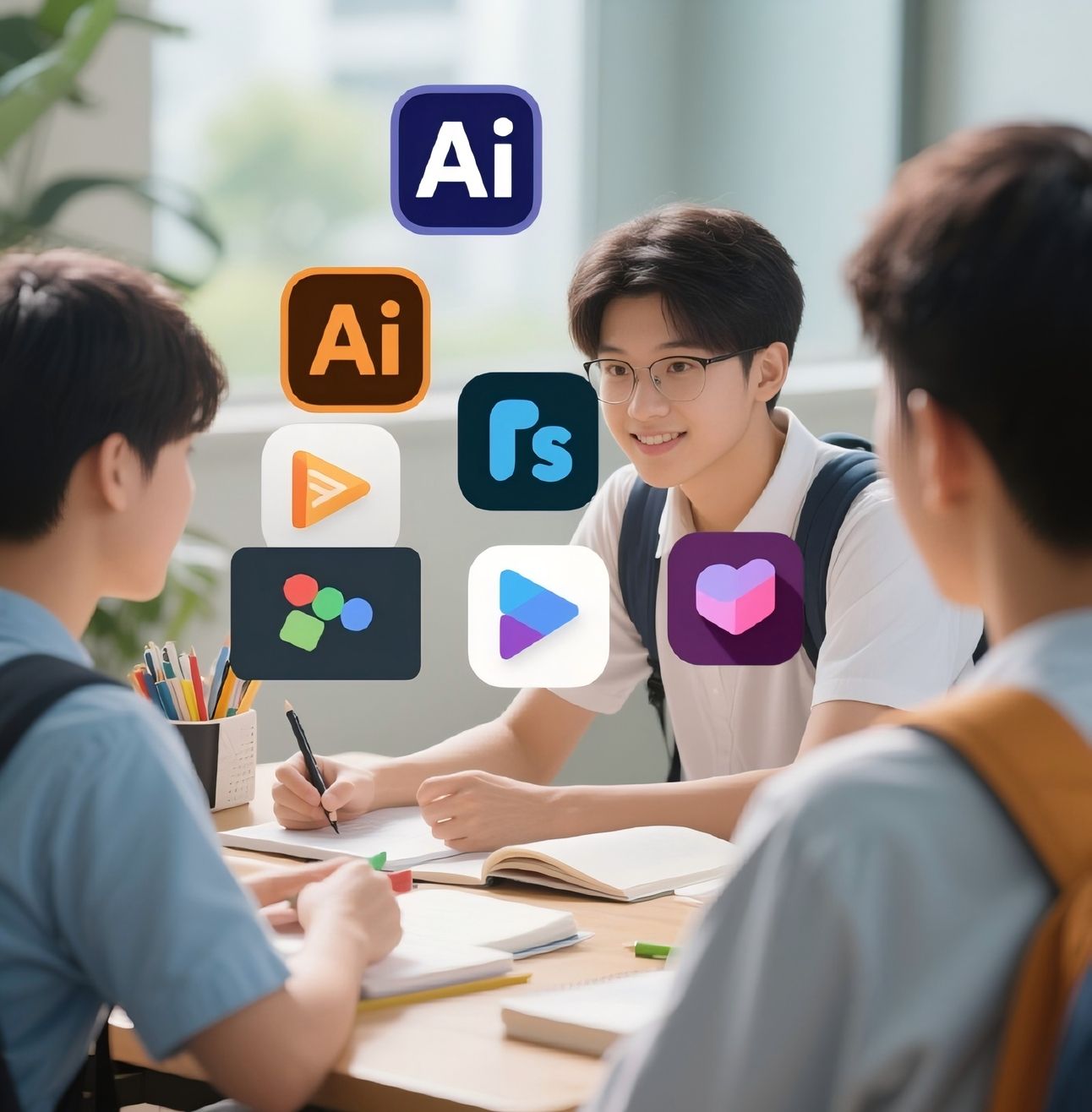- LuxAI Insights
- Posts
- Don’t Rush to Teach Students AI: We’re Raising Dependence, Not Creativity
Don’t Rush to Teach Students AI: We’re Raising Dependence, Not Creativity
24/5000Should we cultivate students who can use AI or brains that no longer need AI?

Tech leaders are urging it. Schools are adopting it. Parents are cheering it on.
“Teach kids AI. It’s the future!”
At first glance, it sounds visionary. Prepare the next generation for the AI-powered world by making them AI-native. Let them code. Prompt. Generate. Build.
But what if we’re getting it completely backward?
What if we’re not raising a generation of innovators—
…but a generation that can’t think without a machine?
Let’s be clear: AI isn’t evil.
It’s powerful. It’s transformative.
It’s here to stay.
But the current rush to embed it into classrooms overlooks one massive risk:
We’re teaching students to use tools before they’ve learned to think independently.
We’re giving them shortcuts before they’ve taken the long way.
We’re offering answers before they’ve learned how to ask the right questions.
And that’s a recipe not for genius—but for intellectual dependency.
Tool Before Mindset = Trouble
Hand a 12-year-old ChatGPT and tell them to “write a story,” and yes—they’ll produce something. Fast.
But what they won’t experience is the messy, frustrating, character-building process of creation:
The blank page. The false starts. The rewrites. The struggle to find their own voice.
That’s where real learning happens. That’s where identity forms. That’s where confidence is born.
Instead, we’re short-circuiting it. We’re replacing imagination with output.
And we’re calling it “progress.”
Creativity Is a Muscle—And AI Is Making It Lazy
Would you teach a child to walk by giving them a wheelchair?
Would you teach them to draw by handing them a printer?
Of course not.
But that’s exactly what we’re doing when we make AI the center of a child’s learning experience.
Instead of asking,
“How do I solve this problem?”
they learn to ask,
“What prompt should I give the AI?”
That shift sounds small.
It isn’t.
It’s the difference between a generation of creators…
and a generation of editors.
Real Innovation Requires Friction
We idolize innovators—Elon Musk, Steve Jobs, Marie Curie—not because they had tools, but because they had vision.
They wrestled with reality.
They questioned assumptions.
They sat in the discomfort of not knowing.
AI removes that discomfort.
And with it, the raw material of breakthrough thinking.
What We Should Teach Instead
Yes, kids should learn about AI. Eventually.
But only after they’ve built the foundations AI can’t replace:
Critical thinking
Imagination
Resilience
Curiosity
Focus
Emotional intelligence
Because if we don’t?
We’ll raise students who can prompt—but not ponder.
Who can generate—but not originate.
Who depend on AI—not just to work, but to think.
Final Thought
Teaching AI before teaching thought is like giving power tools to someone who’s never held a hammer.
They’ll build fast—but they won’t build well.
And one day, they’ll forget how to build at all.
So before we celebrate AI literacy, let’s ask a more uncomfortable question:
Are we raising future leaders—or future prompt engineers?
👉 If this made you pause, share it with a parent, teacher, or anyone who believes in protecting human creativity in an automated world.
🧠 Subscribe for more deep dives into the uneasy intersections of education, technology, and human potential.
Stay up-to-date with AI
The Rundown is the most trusted AI newsletter in the world, with 1,000,000+ readers and exclusive interviews with AI leaders like Mark Zuckerberg, Demis Hassibis, Mustafa Suleyman, and more.
Their expert research team spends all day learning what’s new in AI and talking with industry experts, then distills the most important developments into one free email every morning.
Plus, complete the quiz after signing up and they’ll recommend the best AI tools, guides, and courses – tailored to your needs.

